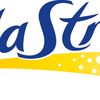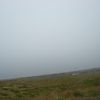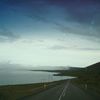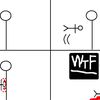Fęrsluflokkur: Dęgurmįl
Jį nekt er įhugaveršur hlutur, hśn getur veriš žaš sem kallaš er "full-frontal" eša bara hįlfnekt sem er žį annahvort einungis efri eša nešri partur sem er sżndur, en žó er žaš sjaldan kallaš nekt žegar karlmašur er ber aš ofan.
Hlekkja sķšur, sem ég kķki einstaka sinnum į, eru žó meš tiltörulega skrżtiš, aš svo mér finnst, kerfi. Žęr flokka allt sem aš inniheldur einhverja nekt sem klįm eša 18+, sem mér finnst frekar įhugavert žar sem aš ég sjįlfur lķt ekki į alla nekt sem klįm....
ég tek dęmi Inni į www.b2.is einni vinsęlustu hlekkjasķšu Ķslands er žetta flokkaš sem 18+ og žetta lķka 18+ en ekki samt žetta haha eša žetta haha eša žetta haha oooog žetta haha
Persónulega finnst mér ég vera aš sjį jafn mikla nekt ef ekki meiri ķ sumu žessu merkt haha og afhverju getur ekki fólk gert greinamun į list og klįmi??
Ég vona svo sannarlega aš einn dag muni fólk įtta sig į žvķ aš skżra tölvuleiki bully og aš hafa kynlķf ķ leik sem er bannašur innan 16 og aš leikur sem bannašur er innan 18 og heitir !Manhunt! skuli vera svona óforskammašur sé allt ķ lagi žetta er bara įkvešin žröngsżni sem aš fólk viršist ekki geta komist yfir
Art


Porn


Frišpķkan kvešur meš stóru vaffi
Dęgurmįl | Slóš | Facebook | Athugasemdir (0)
28.8.2007 | 23:27
Hvaš myndir žś gera?
Ef žś ęttir aš skrifa eitthvaš hérna.... Einmitt... fara aušveldu leišina
Gorals
From Wikipedia, the free encyclopedia



The Gorale (Polish: Górale; Slovak: Gorali; Cieszyn Silesian: Gorole; literally "highlanders") are a group of indigenous people found along southern Poland, northern Slovakia, and in the region of Cieszyn Silesia in the Czech Republic. There is also a significant Goral diaspora in the area of Bukovina in what is today Western Ukraine and northern Romania, Bosnia-Herzegovina [citation needed] as well as Chicago, the seat of the Polish Highlanders Alliance of North America.
Contents[hide] |
[edit] Spread
In Poland they live in the region of Podhale of the Tatra Mountains and parts of the Beskids (Cieszyn Silesia, Silesian Beskids, Żywiec Beskids). In present-day Slovakia they live in 4 separate groups: in northern Spiš (34 villages subdivided in two groups), Orava and Kysuce (2 villages) and smaller groups in 7 other enclave villages in northern Slovakia.
[edit] Origin and language, dialect
There are several hypotheses about their origin, but they are usually considered descendants of Vlachs, who settled this area of the Carpathian Mountains between the 14th to 17th centuries. Analyses of skulls conducted by Polish anthropologists in the 1960s have indicated that they are mostly of Balkan origin.
Their (quite different) dialects are characterized as Proto-Slavic from the Eastern Lechitic, Old Polish area, superimposed by Slovak. In other words, the language is of Polish origin, but has been influenced by Slovak in recent centuries. The language contains Polish words, specific words, Vlach respectively words, Slovak words and words that are peculiar to the Carpathian language area (Carpathisms). Moreover, typical Goral words such as those for mountain/hill such as magura or for fireplace such as vatra which are of Illyrian and Daco-Romanian origin, and which are in used to this day in both Albanian and Romanian languages, became now part of the Polish toponomy in the Highlands inhabited by Gorals.
[edit] National identity
For most Gorals today, the decisive factor in their self-identification with a nationality is not ethnic but territorial. For example, those living in areas under a long tradition of belonging to the Polish state identify themselves as Polish, while those living in Slovakia have identified themselves as Slovaks, with notable exceptions to this rule on both sides of the border. While the origin of the Goral dialect is Polish, [1] the language of Gorals in Slovakia and in the Czech Republic is gradually shifting and increasingly becoming more similar to the literary standard in their respective countries. Gorals of the Czech Republic identify themselves on the nationality level as Poles and are members of the Polish minority in Zaolzie, which is proved by their communal activity - annual Gorolski Święto festival held in Jabłonków is a showcase of a local Polish Gorol traditions and is organized by the PZKO (Polish Cultural and Educational Union). This Gorol festival preserves traditions of Polish nationality group in Zaolzie.[2] It is the largest cultural and folklore festival in Zaolzie area gathering thousands of spectators each day of festivities. Local Gorals formed (as indigenous people) a majority in the past. They speak regional dialect in everyday communication.
Historically, the issue of their ethnic identity has been controversial and resulted in claims and counterclaims by both Poland and Czechoslovakia. Gorals, like many other peasant communities in Eastern Europe, determined their own ethnic identities within the nation state system during the 19th and early 20th century [3]. Although nationalist propaganda was generated by both Poles and Slovaks, this process of the Gorals' identification with a nationality was still not complete when the border was finalized in 1924. A notable example were Ferdynand Machay, a priest born in Jabłonka Orava, Piotr Borowy from Rabča Orava and Wojciech Halczyn from Lendak Spiš, who went to the Paris Peace Conference, 1919 and, during a personal audience, lobbied president Thomas Woodrow Wilson to sign these lands over to Poland. After the world wars, some of the Gorals who had opted for a different national identity to the state they found themselves in emigrated to their chosen side of the border.[citation needed] On the other hand, in the present day, some Gorals opt for the ethnic identity of the neighbouring state, rather than the one they live in [citation needed].
[edit] Gorals in a wider sense
In a wider sense Gorals refers to an ethnographic (or even ethnic) group comprising certain mountainards in northern Carpathians, more precisely these ethnic groups:
- Gorals of Żywiec (pl: górale żywieccy), Poland
- Gorals (Gorols) of Cieszyn Silesia in Poland and Czech republic
- Gorals in Podhale (pl: górale podhalańscy)
- Moravian Vlachs (Moravian Wallachia)
No soup for you.... Frišpķkan kvešur
Dęgurmįl | Slóš | Facebook | Athugasemdir (0)








